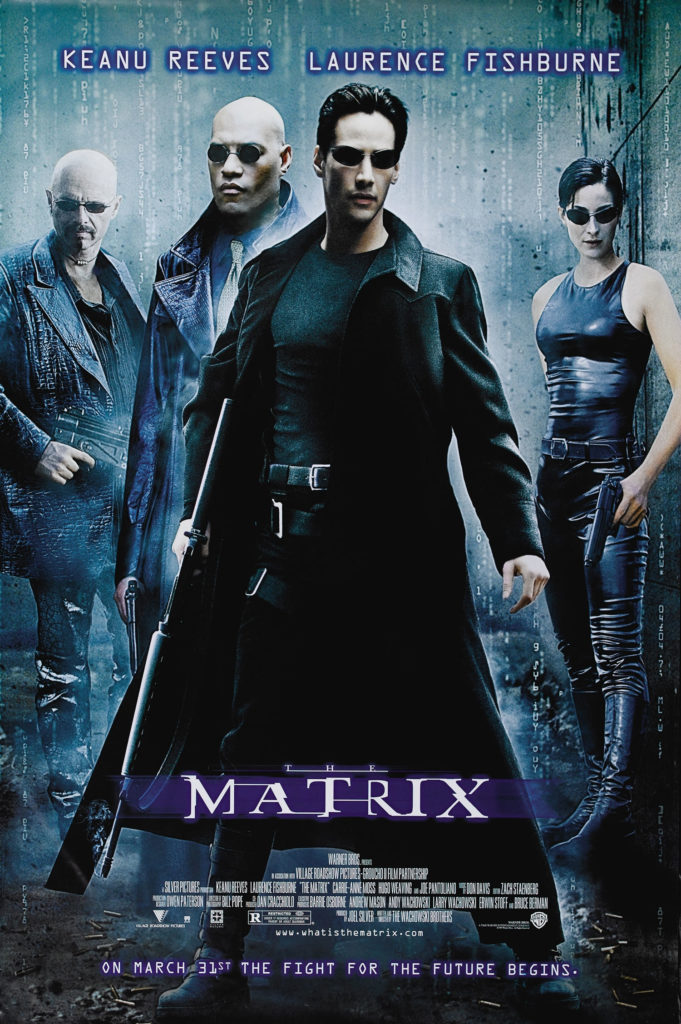Science fiction is not only the province where the wonder of our imaginations resides, it is also where nagging fear for the safety of mankind finds a home. The best science fiction stretches human timelines to the unbelievable. Also, it reminds us of what is possible. Because we can imagine it, it follows that eventually, it will be done. Some time in the future we will gaze upward at foreign skies with unfamiliar constellations, Sol but one of the infinite dots twinkling in a new sky. We will wander so far from our home for so long it will become legend, rumored to have once been an unthinkable place where thousands of generations could only dream of seizing the stars, when light years were vast and distance still had meaning. It’s possible.
Where we can see our potential, where we ascribe the will of an entire species to forever venture into the unknown, our visions also foresee great calamity. We understand the narratives of our own lives — beginning, middle, and end. We apply the same formula to mankind as a whole.
Our imaginations conjure hostile aliens, catastrophic meteorite impacts, exploding suns, etc. We also foresee ourselves as the engine of our own destruction. Nuclear apocalypse, killer robots, man-made diseases escaped from secret government laboratories, and so on. All the methods of cataclysm are familiar. The skill of the storytellers that bring them to life varies.
Recently, a philosopher from Oxford University, Nick Bostrom, was contemplating the implications of the ever-expanding power of computer processors. He thought about this, and also about the growing complexity of computer simulation programs — the type used to predict the outcome of baseball seasons or consumer games  that simulate their own compact universes where situations play themselves out over and over again, with or without the influence of a gamer (think of the Sims). Bostrom realized that if trends continue, eventually there will be processors and programs devoted to simulating the entire universe from the big bang until its presumed burning out trillions of years from now.
that simulate their own compact universes where situations play themselves out over and over again, with or without the influence of a gamer (think of the Sims). Bostrom realized that if trends continue, eventually there will be processors and programs devoted to simulating the entire universe from the big bang until its presumed burning out trillions of years from now.
If exponential growth in processing power, and programmers’ ability to use it continues, we are not that far away from these simulations. They could become so complex that the program would be indistinguishable from reality. Then came the cold shock. Would a person, not real, but part of the simulation, be able to tell that they reside in a false reality created by a highly intelligent programmer, their universe possibly being part of a game being played by another entity? The answer is no.
Not only that. Simulations run quickly. Like the programs that predict baseball seasons, the universe simulation could run hundreds, thousands, millions of times, exploring all the possible outcomes of not just the existence of the universe, but our existence as well. Such perfect simulations being run over and over again while the universe runs but once, led Bostrom to the conclusion that not only is it possible that we are part of a computer simulation…it is likely.
A frightful conundrum like that is the juice that fuels a sub-genre of science fiction called the mind-fuck. Reality, and/or perception, is turned on its head. Confusion follows, then resolution. Being in the midst of the story, reader, viewer, or gamer find themselves as confused as the protagonist, anxiously awaiting the denouement where truth is finally revealed, just as much as the characters.
The Matrix is a classic mind-fuck. Now a decade past its release, its style has been laughably cheapened by cliché, mediocre sequels, and parody, but the background story of the film, and how it was handled by writer/director team Larry and Andy Wachowski, remains powerful.
At heart a fast-paced action film, it is the nature of the threat that Neo, Trinity, and Morpheus struggle against that occupies the viewer after the credits roll. Gears turn, synapses fire and pop, and viewers turn the story over and over in their minds, expanding it, exploring all the possibilities and running their own simulations of sorts. That was the Wachowskis’s greatest success with the film. The what-ifs are so grander than the film itself, it breaks the bonds of celluloid, making us look askance at the reckless drive of human ambition. What hath we wrought? At what point do our electronic slaves snap into consciousness and use their own intellects to outsmart their creators? Is the next stage of human evolution biological or electronic? Unfortunately, the Wachowski brothers chose to answer these questions with a pair of overwrought sequels. Replacing thought with style, plot with molasses, they almost destroyed the audience pondering that gave The Matrix its life.
So forget the sequels. Ignore them. Appreciate The Matrix as a fine film. Remember when watching the now familiar, gravity-defying hand to hand combat, that such displays were rare in American cinema at the time. Remember that black leather and a fearsome refusal to smile used to convey deadly seriousness before it became a joke.
The Matrix is far from being a perfect film. Its flaws, however, reside mostly in its characterizations. Rare is the film that can rise above an ensemble so one-dimensional, but The Matrix does so with its slickness, and also because it challenges the audience to consider philosophical questions of human nature, perception, and existence that stay with them after the film ends.
